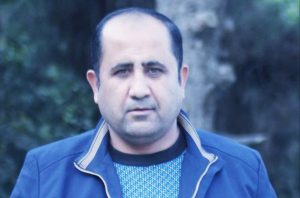Today’s Afghan Women are Different

Many civil society activists believe that Afghan women have made great strides over the past two decades and that no restrictions are acceptable for them if the Taliban participate in power.
Speaking to CSHRN, Kikavus Shoja Taksari, the Secretary of Civil Society of Badakhshan province, said the Taliban must now face the realities of Afghanistan. Over the last two decades, women have made considerable progress. Therefore, their voices must be heard and their meaningful presence in the peace process must be ensured.
CSHRN: What is your assessment of peace talks so far?
Mr. Taksari: The delays in face-to-face talks between the two parties in Doha is a matter of concern for the Afghan people. Everyone here holds out hope for lasting peace and positive changes. They are fed up with the ongoing situation of turmoil and insecurity.
CSHRN: Given the nature of the Taliban, do you still hope for a positive peace deal?
Mr. Taksari: The Taliban must understand the critical roles of women in development activities. Afghan women, especially those who have worked in various fields, are concerned about their position in the post-peace government and will not accept a return to the dark era of the Taliban. I believe that women would play an active and meaningful role in peace talks in order to be able to defend their rights.
CSHRN: Does the government negotiating team, especially its female members, have the capacity to represent Afghan women?
Mr. Taksari: I think women’s presence in the peace talks must be based on fair competition, who have strong capacities and hold public support. Their effective engagement largely depends on their capacities in negotiation with the Taliban. One main concern for women is the undue influence of the Taliban following their possible integration into society as women were deprived of their basic rights when the group was in power in the 1990s.
CSHRN: Do you think restrictions on women will be accepted during the peace process?
Mr. Taksari: Women have always fought for their active presence in different processes to enjoy equal fundamental rights as men. In the meantime, they have to mobilize collective action to reach that goal.
CSHRN: In case of any possible peace agreement, how will the Taliban remain committed to fulfilling their obligation?
Mr. Taksari: After reaching a political agreement, the United Nations along with the Afghan government must closely keep an eye on the Taliban to make sure that the group is fulfilling its commitments.
CSHRN: How will the American presidential election affect the Afghan peace process?
Mr. Taksari: It is not clear whether President Biden will pursue a similar policy as President Trump towards Afghanistan. Biden’s views of the Afghan peace process are not yet clear. Whatever it may come, I hope for lasting peace.